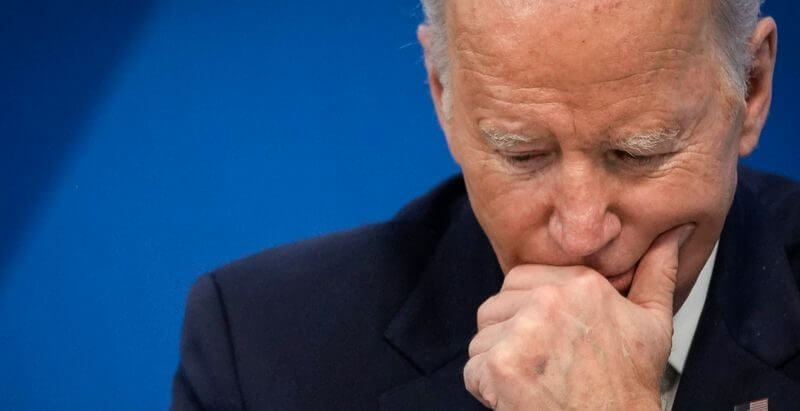By: Jake Smith, Daily Caller News Foundation
The Biden administration has made several concessions toward Iran, a country that likely backed Hamas’ terrorist attacks against Israel on Saturday.
Hamas, an Iranian-backed terrorist organization, launched attacks against Israel on Saturday that killed hundreds of Israelis and at least nine Americans. The Biden administration has historically taken a conciliatory approach when dealing with Iran, such as shelling out a $6 billion “ransom” payment and failing to enforce oil sanctions, as well as allowing a number of individuals secretly working on Iran’s behalf to operate inside the government.
“The theory that if the West restrains, then Iran will restrain, has fallen flat once again,” Behnam Ben Taleblu, senior researcher on Iranian security and political issues at the Foundation for Defense of Democracies, said to the Daily Caller News Foundation. “In the face of over 2-plus years of unenforced oil sanctions [and] allowing Tehran the potential to earn far more than 6 billion dollars, Iran has continued supporting proxies and partners with the overall aim of sharpening the knife it has pre-positioned at the neck of Israel.”
One example of Biden’s allowances toward Iran has been taking a softer stance on enforcing oil sanctions than previous administrations. Iranian oil exports have reached almost 2 million barrels a day, a sharp contrast to the limited 400,000 barrels exported a day in 2020 under former President Donald Trump.
Homeland Security Investigations have not seized an Iranian oil shipment in over a year, despite the fact that the organization’s prime responsibility is sanctions enforcement. Bipartisan lawmakers have criticized the Biden administration for its “lack of action” and intentional ignorance toward Iranian sanctions violations.
The Biden administration continued to ease off sanctions enforcement following the recent completion of a deal in which $6 billion in assets was unfrozen and granted to Iran in exchange for five American prisoners, in what has been derided by critics as a “ransom” payment. Though the administration insists that the $6 billion can only be used for humanitarian purposes, it also frees up unrestricted funds Iran already had in its reserves, allowing them to fund terrorist operations by Hamas or Hezbollah, experts told the DCNF.
Additionally, Iranian President Ebrahim Raisi stated in September that Tehran has the “authority” to use the $6 billion “wherever [they] need it,” despite previous assurances from the White House. The payout is likely only to embolden Iran to take more hostages in the hopes of another payout, experts previously told the DCNF; Hamas has already captured hundreds of Israelis in their attacks that began Saturday.
The Biden administration has likely made such concessions to get Iran back to the negotiating table on the Joint Comprehensive Plan Of Action (JCPOA) – informally known as the Iran nuclear deal – that was signed in 2015 by the Obama administration, according to experts who previously spoke to the DCNF. The deal was scrapped in 2018 by former President Donald Trump for containing too many exemptions, and severe economic sanctions were put in place instead.
The Biden administration started working to return Iran to the deal in 2021, but Iranian leadership has been largely disinterested and refused multiple proposals, leading the administration to come up with new offers that ease some of the harsher aspects of the deal and waives certain sanctions. No deal offered has been accepted by Iran, and it now has enough enriched uranium to build ten nuclear weapons in the course of four months.
“It’s also clear from Biden’s shifting redlines and goals with respect to Iran’s nuclear program – moving from a longer and stronger deal, to clean JCPOA resurrection, to a lesser deal, to merely an informal unwritten understanding – that the administration is looking for as little oversight as possible on the entire process,” Taleblu told the DCNF.
Additionally, a number of members of an influence network known as the Iranian Experts Initiative (IEI) have gained access to U.S. officials, and at least one has held a high-level position in the Pentagon. The IEI was created in 2014 to influence U.S. and European academics to covertly push Tehran’s agenda, either through media appearances, widely publicized op-eds or in government roles.
One such example is Ariane Tabatabai, the current chief of staff for the assistant secretary of defense for Special Operations in the Pentagon and a former Iranian diplomat for the Biden administration. After it was discovered that Tabatabai was a member of the IEI, the Pentagon said it would begin investigating how she was hired, but it missed the House Armed Services Committee (HASC) deadline of Oct. 3 and failed to produce updates on the investigation; Tabatabai has not been fired from her role.
Another member of the IEI is Ali Vaez, a senior advisor at the International Crisis Group who’s made multiple appearances in Western media and written a number of pieces favorable to Iran. Vaez visited the White House on multiple occasions to meet with high-level Biden administration officials as recently as March, visitor logs reveal.
It’s not clear if the officials Vaez met with were aware of his ties to the IEI, though it’s certainly possible, according to Gabriel Noronha, former special advisor for the State Department.
“In this case, they either ignored that influence, which has been quite evident to many observers and practitioners of Iran policy insiders for years, or they actually were interested in cultivating someone with ties to the regime,” Noronha said about the White House allowing Vaez to visit.
Both Vaez and Tabatbai are close allies to Robert Malley, the Biden administration’s special envoy for Iran, who was recently suspended from his role over concerns about his handling of classified information and his ties to Iranian intelligence. Malley was previously fired from former President Barack Obama’s 2008 Democratic presidential campaign for facilitating communications with Hamas.
No updates have been given by the State Department on the ongoing investigation into Malley, only that it exists and he is still on unpaid leave. He has not been fired from his role.
The White House and State Department did not immediately respond to the DCNF’s request for comment.
Related Story: Biden Administration Released Billions to Iran Weeks Before Israeli Attack









